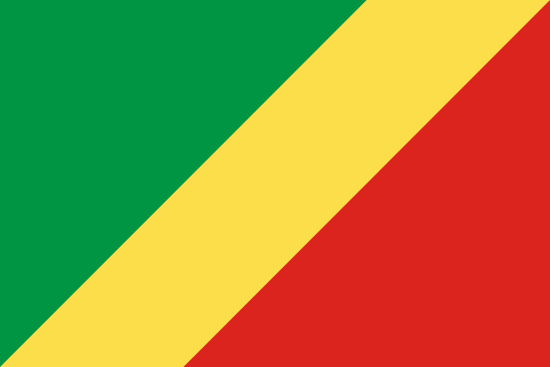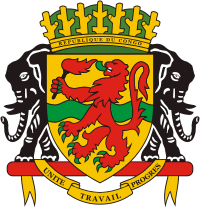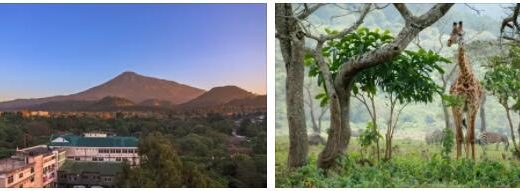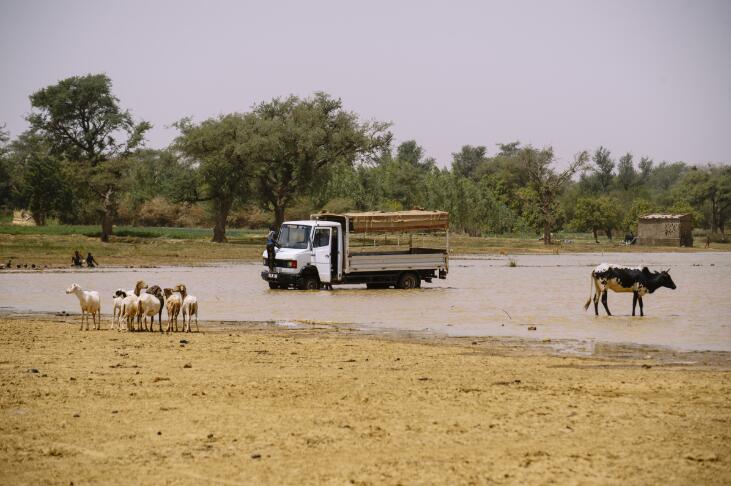Republic of the Congo Overview
Congo-Brazzaville, or Republic of the Congo as the country is actually called, is a state in Central Africa. The People’s Republic of Congo was the official name of the country during the years 1969-1991. The country is located on the Atlantic Ocean and borders Angola, Cameroon, the Central African Republic, Congo-Kinshasa and Gabon.
| Capital: | Brazzaville |
| Biggest city: | Brazzaville |
| State: | republic |
| Language: | French |
| Religion: | Christianity, animism |
| Surface: | 342 000 km² |
| Population: | 4.4 million (2013) |
| Population density: | 12 residents per km² |
| Life expectancy: | 54 years |
| Illiteracy: | 16% |
| Currency: | CFA franc (XAF) 1 CFA franc = 0.01 kr |
| GDP per capita: | $ 4,500 (2010) |
| Time difference: | +0 hours |
| Electricity: | 220/230 V AC, 50Hz |
| National Day: | August 15th |
| Country area code: | 242 |
| 2-Letter country abbreviation: | CG (See more abbreviations on Abbreviationfinder) |
| Business: | agriculture 75%, industry and services 25% |
| Climate: | tropical, with rainy season from March to June |

As early as the 15th century, the first Portuguese came to the area around the Congo River and eventually also French explorers and merchants. At the beginning of the 0’s, the French gained the upper hand and established stations for the slave and ivory trade. Large parts of the area were explored by French explorers in the 1870s, and at a conference in Berlin in 1885, France’s demands for the area were recognized. The territory was first called French Congo, later Central Congo or Central Congo; In 1910, it merged with other areas into French Equatorial Africa, which in 1956 gained internal autonomy.
The People’s Republic of the Congo, whose southern and eastern borders are the Congo River, became independent in 1960 – the same year as its southern neighbor, Zaire (formerly the Democratic Republic of the Congo and formerly the Belgian Congo). The two Congo states have often been at odds with each other. Alphonse Massamba-Débat took office as president in 1963 and in 1964 founded a Marxist-Leninist party.
The country operated according to Stalinist principles with five-year plans and nationalization of agriculture and industry. In 1968, General Marien Ngouabi seized power and pursued communist policies, albeit through his own Communist Party, the Congolese Workers’ Party (PCdT). Ngouabi was assassinated in 1977, power was taken over by a military council headed by Joachim Yhombi-Opango. He resigned in 1979 after a conflict with the Labor Party, which opposed tendencies towards a more Western-friendly policy. Successor became the clearly left-leaning Denis Sassou-Nguesso The successors continued on the paved path.
In 1992, opposition parties were allowed and the country got its current name, but unrest and occasional civil wars have made no real democracy impossible, so the PCdT continues to hold a strong grip on power. A short civil war in 1997 brought back the Soviet loyalist general Sassou-Nguesso, who took power for the first time in 1979, to the presidency. This ushered in a period of ethnic unrest that ended with a peace agreement in March 2003.
WORLD HERITAGE
The following objects in Congo-Brazzaville are listed as a UNESCO World Heritage Site.
The year in which the item was added to the list is indicated in parentheses.
- Rainforest Sangha Trinational (2012)
ELECTRICAL OUTLET
Electricity and electrical outlets in Congo-Brazzaville
Voltage: 220 V
Frequency: 50 Hz
Type of plug: C, D
Need an adapter: No, you do not need an adapter.
CLIMATE AND WEATHER
Weather in Brazzaville
| Climate | Jan | Feb | Mar | Apr | May | Jun | Christmas | Aug | Sep | Oct | Nov | Dec |
| Average temperature °C | 26 | 26 | 27 | 26 | 26 | 23 | 22 | 23 | 25 | 26 | 26 | 26 |
| Day °C | 29 | 30 | 30 | 30 | 30 | 27 | 26 | 27 | 29 | 29 | 28 | 28 |
| Night °C | 22 | 22 | 23 | 23 | 22 | 20 | 19 | 20 | 21 | 22 | 22 | 22 |
| Rain (mm) | 130 | 120 | 180 | 200 | 110 | 0 | 0 | 0 | 30 | 140 | 230 | 160 |

Brazzaville
According to Countryaah, Brazzaville is the capital of Congo-Brazzaville and is located on the Congo River on the border with Congo-Kinshasa. The city has 3.9 million residents (2009). Opposite the city on the other side of the Congo River is Kinshasa.
Brazzaville was founded in 1880 by the Italian-French explorer Savorgnan de Brazza, after whom the city was named. The city was the capital of French Equatorial Africa in 191058 and has been the capital of Congo-Brazzaville since 1960.
Brazzaville is the country’s administrative and cultural center and a significant transit port for other Central African countries. The city has an international airport.


